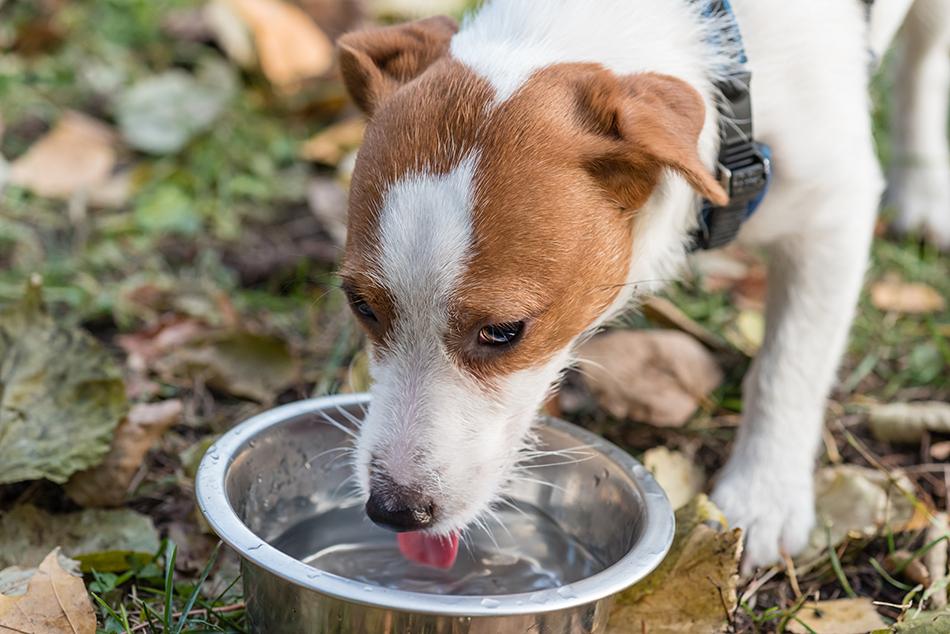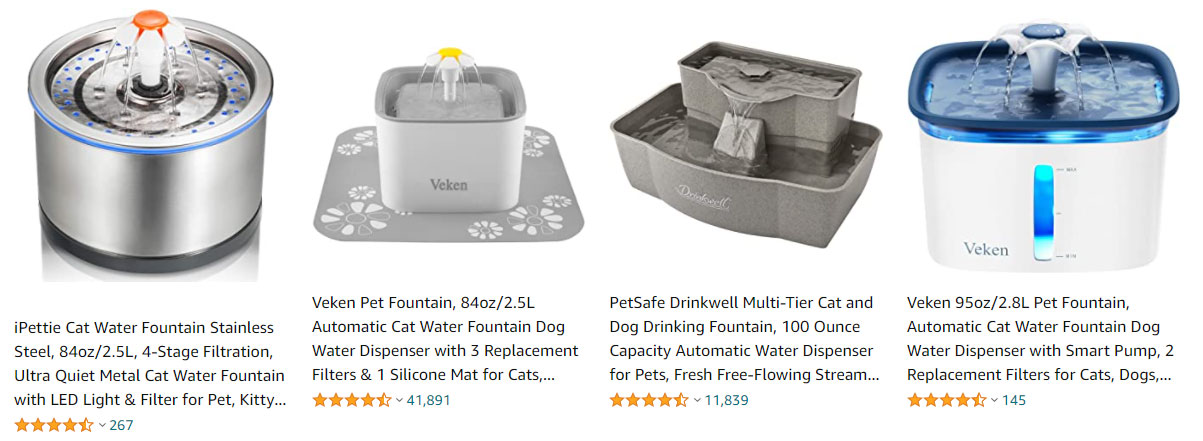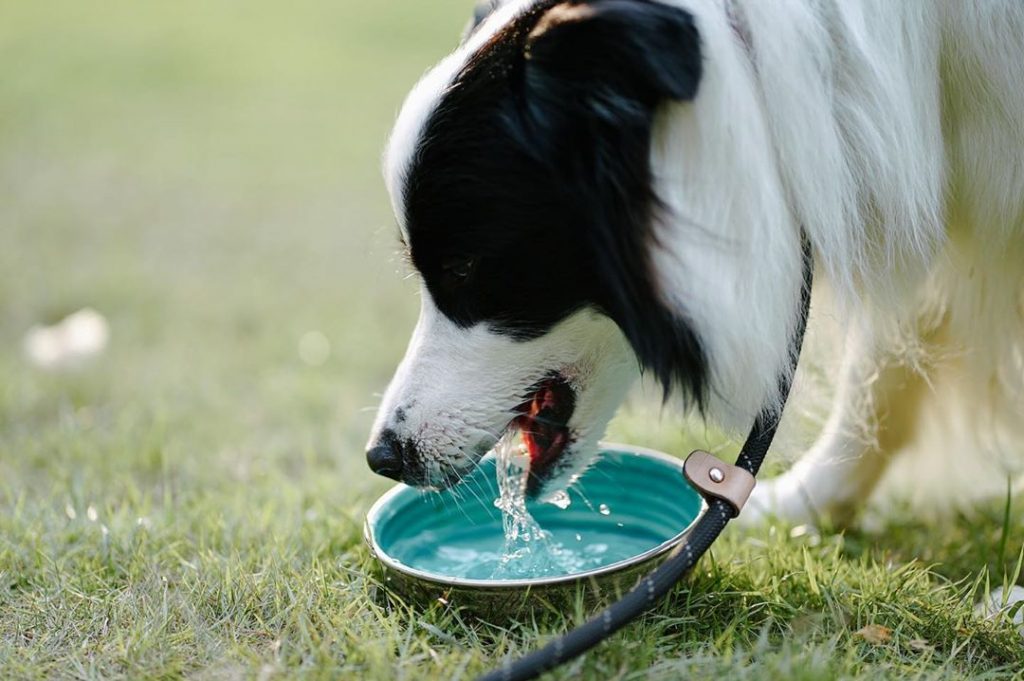How much water should a dog drink per day
Monitoring your dog's hydration is important to get an overview of his overall health and to identify potentially serious problems behind excessive thirst or lack of thirst.
However, the first step in detecting any abnormalities is to know what the norm is and what may be causing your dog to deviate from it.
Normal amount of water for a dog
Normally, a healthy dog consumes between 50 and 70 ml of water per kilogram of body weight, which means, for example, that a 10 kg dog should drink between 0.5 and 0.7 liter of water per day. However, this estimate can vary depending on the specimen, its character, lifestyle, diet and ambient heat.
So don't be surprised if your dog drinks more in a heat wave, if he is stressed or if he suddenly switches from a wet to a dry diet. Abnormal water intake is considered to be less than 40 ml or more than 100 ml of fluid drunk per day per kilogram of body weight, consistently.
A sudden change in your dog's drinking habits should be cause for alarm, but abnormal thirst - especially when it is excessive - usually occurs insidiously, so that the owner may not be aware of it. Ideally, you should monitor your dog's water intake when he is perfectly healthy, for example, in a period following a good veterinary check-up, in order to create a baseline.
Based on this baseline, any changes should be quickly reported to a veterinarian if they are not definitely related to one of the above (heat wave, diet, etc.). Finally, if your dog suddenly drinks too much, don't make the mistake of reducing his access to water: this would be catastrophic - even lethal - if the disorder causing this abnormal drinking causes intense dehydration of his body.

Why does my dog drink too much?
The possible causes of polydipsia (excessive thirst) in dogs are extremely varied, but most often the animal has disorders related to the malfunction of its internal organs. Pancreatic damage can cause diabetes mellitus, kidney damage can cause kidney failure, and liver damage can cause liver failure, all of which manifest as excessive thirst, often accompanied by other non-specific symptoms.
Hormonal disorders, such as Cushing's syndrome or hypothyroidism, can also cause more or less noticeable polydipsia. Finally, psychological disorders related to constant anxiety can cause potomania (the dog drinks everything he finds compulsively), a possibility that should only be considered when all pathological causes have been ruled out.
Why isn't my dog drinking enough?
The lack of drinking in dogs (adipsia) is most often caused by pain that prevents the animal from swallowing anything. The dog may have an object stuck in its mouth, periodontal disease, an abscess in the mouth, a Dilation-Torsion of the Stomach, an esophageal injury or any other injury to the upper digestive tract that causes pain.
In some cases, neurological diseases may be involved, which may interfere with the animal's reflex functions such as drinking when thirsty, or with the mobility of its jaw. Finally, it is possible that the dog's bowl simply does not taste right or causes contact allergies, in which case you should buy a ceramic container and make sure that the dog's water is always fresh.
Keeping an eye on your dog's water intake is a good practice that all owners can do by simply bending over their dog's bowl every day when emptying it to put back clean water.
Has the dog been drinking as much as usual and, if not, why not? By asking the right questions, you'll be able to react quickly if your dog needs help and give him the best chance of recovery.


